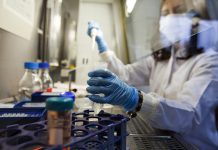Asal Shirazi, Founder and CEO of the Autoimmune Support and Awareness (ASA) Foundation, explains the challenges in detecting, diagnosing and managing autoimmune conditions
Autoimmune conditions are on the rise by nearly 10% a year and, as a group, are bigger killers than cancer yearly. They are mostly invisible conditions that have a life-changing impact on sufferers and families. However, although they are recognised as individual conditions such as lupus or MS, the majority are not recognised/detected early. This is due to a lack of adequate training at medical school and awareness among the general public.
Long-COVID is autoimmune-related, and despite this, health authorities and governments are still not educating the public about such conditions. Education leads to knowledge, earlier diagnosis, research, and more targeted treatment.
Environmental agents linked to autoimmune conditions
Increasing evidence is linking environmental exposure to chemicals to a higher risk of autoimmune diseases. These chemicals include trichloroethylene, silica, pesticides, insecticides, pristane mercury, and smoking. Many others, such as environmental chemicals, are also included, but it also depends on the susceptibility of the person exposed.
Exposure to asbestos, for example, is known to increase the occurrence of rheumatoid arthritis, systemic sclerosis, and systemic lupus, as well as pleural mesothelioma, lung cancer and cancer of the digestive system. Silica dust and asbestos increase the production of autoantibodies, creating a highly inflammatory environment. Studies have shown that continued exposure of T lymphocyte cells in the immune system results in anti-tumour immunity, which explains the correlation between lung cancer and other inflammatory conditions and asbestos.
Exposure to asbestos, for example, is known to increase the occurrence of rheumatoid arthritis, systemic sclerosis, and systemic lupus, as well as pleural mesothelioma, lung cancer and cancer of the digestive system. Silica dust and asbestos increase the production of autoantibodies, creating a highly inflammatory environment. Studies have shown that continued exposure of T lymphocyte cells in the immune system results in anti-tumour immunity, which explains the correlation between lung cancer and other inflammatory conditions and asbestos.
As much as medical research is advancing daily, the information and education are not transpired into the community and medical staff at the front line. ASA Foundation helps to educate the public and front-line medical staff on the causes, effects, symptoms, and resulting damage, both physically and mentally, of sufferers. Education and continued updating of information by GPs and primary healthcare staff can lead to faster diagnosis, less physical/emotional damage, increased quality of life and more accurate targeted treatments from the onset. These conditions are triggered and exasperated by stress, and with the continued rising cost of living and socioeconomic issues currently, the incidence of autoimmunity is on the rise considerably.
Unfortunately, post-COVID and such viruses are still in the communities and continue to evolve. It is important to make sure the public has self-awareness and that the medical primary care is educationally up to date to prevent more damage to individuals.
References
2. https://www.ncbi.nlm.nih.gov/pmc/articles/PMC5097114/
3. https://www.asbestos.com/news/2023/08/31/autoimmune-asbestos-exposure-libby/
4. https://www.ncbi.nlm.nih.gov/pmc/articles/PMC4290643/
5. https://www.ncbi.nlm.nih.gov/pmc/articles/PMC7584019/
Contributor Details
Editor's Recommended Articles
-
Must Read >> Multiple sclerosis – the disease of a thousand faces












